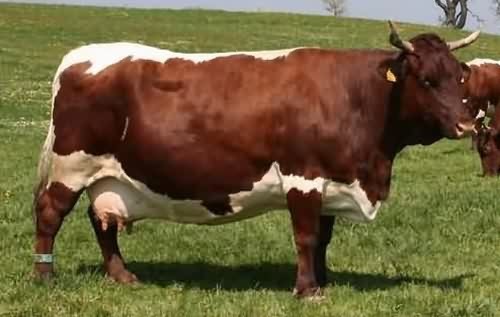Pinzgauer cattle were developed in the Pinzgau district in
the province of Salzburg, Austria, and appeared for the first time in documents
in the 1600's.
Horned or Polled, Pinzgauer have pigmented skin under a
chestnut red coat and white markings on the back, tail and barrel. They adapt
readily and easily to a variety of climates. Eye problems are rare. Smooth hair
and firm, flexible skin discourages tick and other insect infestations. Bulls
average 2000 pounds and up, while mature females level out at approximately
1,000 to 1,300 pounds with a moderate frame.
Pinzgauer progeny have above average weaning
weights, gain ability and feed conversion, but they maintain the easy calving
ability that cattlemen prefer. Rib-eye measurements and marbling scores
indicate high yields and superb quality. The female's udders are well-formed
and hold up well during lactation. The breed is known for its docility.

